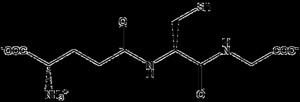“Restrain the Liver” Herbal Formula Helpful In Children With Tourette’s Syndrome

Yi Gan Wan is one of any number of formulas with potential usages for anxiety and related symptomology. Yi Gan Wan was originally designed for children (with issues such as fright, insomnia, anxiety, etc.), and now in modern times is used on all ages of patients due to our stressful lifestyle as well as more complicated issues such as elderly patients with psychological and cognitive issues from dementia.
Yi Gan Wan has potential implications (and supportive research) for a fairly broad range of psychological issues. Today, I want to discuss a few studies that utilized this formula.
I’ll start by discussing “Effects of Yi-Gan-san on the psychiatric behavior of children and adolescents with Tourette's Syndrome”. Here, researchers from the Graduate Institute of Integrated Medicine within the China Medical University in Taichung, along with other institutions, recruited 38 patients with Tourette Syndrome to explore the effectiveness of Yi Gan Wan on their symptoms.
Generally, the primary symptoms of Tourette syndrome are a range of motor and/or vocal “tics” such as exaggerated eye blinking, head jerks, repetitive throat clearing, and similar behaviors. These symptoms can be simple or complex. Simple for motor symptoms involves a single muscle group, perhaps just eye blinking, where as complex for motor symptoms can be more gross movements involving more muscle groups such as repeatedly touching a part of their body or of other people. For vocal symptoms, simple might be repetitive throat clearing, whereas complex for vocal symptoms might involve repeating words, or spurting out certain phrases, as examples. In some cases Tourette Syndrome also exists with other conditions such as anxiety, OCD, or ADHD.
This constellation of potentially associated symptoms with poorly understood causes is what makes this condition a candidate for exploring treatment with Chinese Medicine. Generally speaking, Chinese Medicine tends to work more broadly, at the root of issues, instead of getting “lost”, so to speak, in the individual symptoms. In Children, this range of issues can be difficult to diagnose except over longer periods of time - even then, effective western treatment options are minimal.
In their study, researchers recruited 38 patients, with 19 in a control group and the study was double-blinded. The primary measurement was the Yale Global Tic Severity Scale. They found that over the coarse of the 4 weeks the formula reduced phonic tics notably, but had little noticeable effect on motor tics compared with the control group.
While the results for motor symptoms were not overwhelming, the researchers noted that this was a small study, with a well tolerated formula, so other large scale studies should be performed to evaluate further. Further, as practitioners of Chinese Medicine, we know to be concerned with each individuals diagnosis in Chinese Medicine terms to choose herbal formula approaches - rather than a one-size fits all approach as is common with many studies. This matters because the results in children who match the diagnostic requisites of the formula (i.e. liver wind, liver blood deficiency with liver heat, etc.) may be see better results than patients with Tourette syndrome from other underlying patterns in TCM terms.
Yi Gan Wan was being explored as there is broad range of evidence that it may help certain people with varying psychological illnesses. A few studies of note would be:
- “Yi-Gan San Restores Behavioral Alterations and a Decrease of Brain Glutathione Level in a Mouse Model of Schizophrenia”, where researchers concluded that Yi Gan Wan “restores behavioral alterations and [decreases] brain glutathione levels”.
- “Effect of Yi-Gan San on psychiatric symptoms and sleep structure at patients with behavioral and psychological symptoms of dementia”, where researchers concluded that Yi Gan Wan “was effective for [behavioral and psychological symptoms of dementia] and sleep disturbances, and well tolerated”
- “Involvement of the benzodiazepine system in the anxiolytic-like effect of Yokukansan (Yi-gan san)”, where researchers suggest that Yi Gan Wan “produces an anxiolytic-like effect mediated by the benzodiazepine system”.
There are many more, but what is becoming clear is that besides the long historical clinical usage of Yi Gan Wan, it certainly has potential to influence many systems related to mood and behavior. The “trick”, of course, is to know what exactly a particular individual needs and how best to create the changes that specific individual needs. While we have our ways in Chinese Medicine to approach this, knowing what the conditions may involve in western terms and what these formulas may do in western terms can only help to make our approaches more comprehensive over time.
tag @yinyanghouse for questions/comments